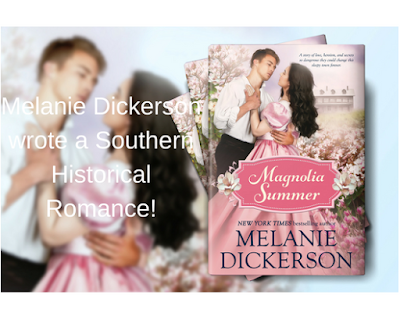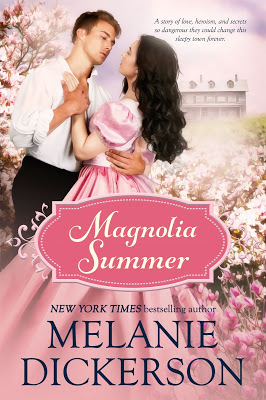Write Your Feelings
Melanie Dickerson here.
Ten plus years ago when I was trying to get my first Medieval fairy tale retelling published, I was having no luck at all. It couldn’t have been any worse if I’d been selling ice makers to penguins in the North Pole. And penguins only live in the Southern Hemisphere. You get my point. Nobody wanted it because it was Medieval. Nobody wanted it because it was a YA romance. And nobody wanted it because I was nobody. You know?
Since Medievals and YA romances weren’t selling, I decided I’d better write something closer to what was selling, which was romances set in the 1800s in the U.S. I also got the idea that I was going to follow the advice I’d often heard, which was to “Write What You Know.” And since what I know is the South, having grown up and lived nearly my whole life in the Deep South, mostly Alabama, then I’d set a romance in 1800s Alabama.
 But looking back, I don’t think the advice to “write what you know” means to write books set in the places you are most familiar with. I think it has more to do with the writer’s own experiences and emotions. You can research a setting. After all, I’ve been writing books set in Medieval Europe and I’ve certainly never been there. I’ve been to Germany, but just being there for a few weeks doesn’t make me an expert. I’ve mostly learned about Medieval Germany from the internet, from pictures and books and videos.
But looking back, I don’t think the advice to “write what you know” means to write books set in the places you are most familiar with. I think it has more to do with the writer’s own experiences and emotions. You can research a setting. After all, I’ve been writing books set in Medieval Europe and I’ve certainly never been there. I’ve been to Germany, but just being there for a few weeks doesn’t make me an expert. I’ve mostly learned about Medieval Germany from the internet, from pictures and books and videos.
But in those books, I’ve written what I know. I’ve drawn on my experiences and given them to my characters. I’ve drawn on the emotions I’ve experienced going through certain situations and trials and I’ve transferred those to my heroes and heroines. And even my villains.
When I started writing Magnolia Summer, I’d just experienced, for the second time in my life, fainting in front of strangers, so I put it in that book. Yes, it is a cliché for a romance heroine to faint. And some people hate that. I got a wee bit of smack from readers over having my heroine from A Dangerous Engagement faint a few times. But fainting is something that’s happened to me. It’s something I know.
I know the emotions of it, how embarrassing it is, firsthand. So I used it in Magnolia Summer. And then, years later, I wrote it into Felicity’s story in A Dangerous Engagement, because hey, a little angst and drama are good for a story, and fainting is angsty and dramatic. And the truth is, there are people who are physically prone to fainting. My daughter also has this, and it’s frustrating. It doesn’t happen because you’re weak or wimpy or pathetic. It’s a physiological hiccup, and let me tell you, if your body decides to faint, there is nothing you can do to stop it.
There are tons of other things that occur in Magnolia Summer that I know firsthand. In fact, the books in which I put my most personal experiences are the books that have a special place in my heart. Now, I’m not saying the exact things that happen in my books actually happened to me. But similar things, or things that produce the same type of emotions, happened to me. They’re what I know. I know what it feels like to be sexually harassed by an older man. That happened to me in my teens, and the same thing happened to Annabel in The Merchant’s Daughter. I used that experience and those feelings. I gave them to Annabel because they worked for the plot, and maybe also because I never intended to share that with anyone and I felt safe dealing with it in my book. (Sorry, Past Melanie. Present Melanie sometimes overshares.)
In Magnolia Summer, a rattlesnake is threatening a little girl. My heroine beats the snake to death with a stick. When I was teen, I came upon a rattlesnake next to our front steps that was only inches away from my puppy, who was completely oblivious to it. I shoved my puppy back, grabbed my long stick that I took with me on walks, and I bludgeoned that snake to death. So that scene in the book is pretty much identical to what happened to me, once my heroine grabs that stick.

Let it never be said of me that I wasted a dramatic experience from real life.
I also know what sweet, chivalrous, Southern men are like, and I tried really hard to duplicate that “Southern gentleman” experience in Magnolia Summer. Some of the Southern gentlemen in the book are only gentlemanly when it suits their purpose, as in the case of the villains in the book, Sheriff Suggs and his son, Curtis. But others, like my hero Truett Beverly, are the real deal—strong and soft-spoken and unfailingly heroic and chivalrous to women and children. I hope I captured what it feels like to have a man treat you that way. Because that’s what fiction is all about, making the reader FEEL. If I can make you feel something, I’ve done my job well.
I know the terror of the thought that I might have to give up my dream—in my case, writing, and in my heroine’s case, owning her own dress shop.
I know the pain of losing my father, which I had recently gone through when I wrote Magnolia Summer, and I gave that pain to my heroine.
I know what it’s like to want something so badly and yet, at the same time, to fear that it will ruin your life, so I gave that desire/terror to my heroine.
I know what it’s like to live in Alabama with no air conditioning. I know how Southerners speak and how it feels to have someone think you’re stupid just because you have a Southern accent. And I know how it feels to be nearly destitute and worry you won’t be able to buy food. I know how it feels to stand up for someone that others are mistreating. And I used all those feelings in this book.
Write what you know. Write your life experiences. Don’t let anything go to waste, hold nothing back. Don’t eat your feelings; write them.
So now it’s your turn. If you’re a writer, tell us in what ways you “write what you know” or “write your feelings” and life experiences. You don’t have to get too personal if you don’t want to, but it’s more interesting if you do. LOL!
And if you’re a reader, how do you think it increases your reading enjoyment if the emotion in a book feels real and authentic? Do you feel like you can detect whether a writer is writing their own feelings authentically, or just phoning it in?
One commenter will win either a paperback copy or an ebook copy of Magnolia Summer, which just released in paperback and will release on Kindle Sept. 5th.

Truett Beverly returned to Bethel Springs, Alabama, after finishing medical school. Fighting a secret war with a corrupt lawman wasn’t in his plans, but when Sheriff Suggs threatens his childhood friend, Truett dons a cape and hood and becomes the Hooded Horseman, placing him squarely in the sheriff’s crosshairs.
Celia Wilcox arrives in Bethel Springs in June of 1880. She’s come from Nashville to help her sister care for their younger siblings. She hopes only to be on the small farm for the summer, just until her mother recovers from the shock of Celia’s father’s death. She must return to Nashville in order to fulfill her dream of opening her own dress shop.
Celia catches Truett’s eye from the moment she steps off the train. He finds himself wanting to impress her, but she flatly refuses to flirt with him or to fall for his—if he does say so himself—considerable charm. Truth is, Celia’s attraction to Dr. Truett Beverly terrifies her. What will happen when Sheriff Suggs discovers Truett is the Hooded Horseman? Will Celia's greatest fears come true? Or will she be able to prevent the sheriff from carrying out one last lynching?
Pre-order the ebook, which releases Sept. 5th, or order the paperback, available NOW.
Ten plus years ago when I was trying to get my first Medieval fairy tale retelling published, I was having no luck at all. It couldn’t have been any worse if I’d been selling ice makers to penguins in the North Pole. And penguins only live in the Southern Hemisphere. You get my point. Nobody wanted it because it was Medieval. Nobody wanted it because it was a YA romance. And nobody wanted it because I was nobody. You know?
Since Medievals and YA romances weren’t selling, I decided I’d better write something closer to what was selling, which was romances set in the 1800s in the U.S. I also got the idea that I was going to follow the advice I’d often heard, which was to “Write What You Know.” And since what I know is the South, having grown up and lived nearly my whole life in the Deep South, mostly Alabama, then I’d set a romance in 1800s Alabama.
 But looking back, I don’t think the advice to “write what you know” means to write books set in the places you are most familiar with. I think it has more to do with the writer’s own experiences and emotions. You can research a setting. After all, I’ve been writing books set in Medieval Europe and I’ve certainly never been there. I’ve been to Germany, but just being there for a few weeks doesn’t make me an expert. I’ve mostly learned about Medieval Germany from the internet, from pictures and books and videos.
But looking back, I don’t think the advice to “write what you know” means to write books set in the places you are most familiar with. I think it has more to do with the writer’s own experiences and emotions. You can research a setting. After all, I’ve been writing books set in Medieval Europe and I’ve certainly never been there. I’ve been to Germany, but just being there for a few weeks doesn’t make me an expert. I’ve mostly learned about Medieval Germany from the internet, from pictures and books and videos. But in those books, I’ve written what I know. I’ve drawn on my experiences and given them to my characters. I’ve drawn on the emotions I’ve experienced going through certain situations and trials and I’ve transferred those to my heroes and heroines. And even my villains.
When I started writing Magnolia Summer, I’d just experienced, for the second time in my life, fainting in front of strangers, so I put it in that book. Yes, it is a cliché for a romance heroine to faint. And some people hate that. I got a wee bit of smack from readers over having my heroine from A Dangerous Engagement faint a few times. But fainting is something that’s happened to me. It’s something I know.
I know the emotions of it, how embarrassing it is, firsthand. So I used it in Magnolia Summer. And then, years later, I wrote it into Felicity’s story in A Dangerous Engagement, because hey, a little angst and drama are good for a story, and fainting is angsty and dramatic. And the truth is, there are people who are physically prone to fainting. My daughter also has this, and it’s frustrating. It doesn’t happen because you’re weak or wimpy or pathetic. It’s a physiological hiccup, and let me tell you, if your body decides to faint, there is nothing you can do to stop it.

There are tons of other things that occur in Magnolia Summer that I know firsthand. In fact, the books in which I put my most personal experiences are the books that have a special place in my heart. Now, I’m not saying the exact things that happen in my books actually happened to me. But similar things, or things that produce the same type of emotions, happened to me. They’re what I know. I know what it feels like to be sexually harassed by an older man. That happened to me in my teens, and the same thing happened to Annabel in The Merchant’s Daughter. I used that experience and those feelings. I gave them to Annabel because they worked for the plot, and maybe also because I never intended to share that with anyone and I felt safe dealing with it in my book. (Sorry, Past Melanie. Present Melanie sometimes overshares.)
In Magnolia Summer, a rattlesnake is threatening a little girl. My heroine beats the snake to death with a stick. When I was teen, I came upon a rattlesnake next to our front steps that was only inches away from my puppy, who was completely oblivious to it. I shoved my puppy back, grabbed my long stick that I took with me on walks, and I bludgeoned that snake to death. So that scene in the book is pretty much identical to what happened to me, once my heroine grabs that stick.

Let it never be said of me that I wasted a dramatic experience from real life.
I also know what sweet, chivalrous, Southern men are like, and I tried really hard to duplicate that “Southern gentleman” experience in Magnolia Summer. Some of the Southern gentlemen in the book are only gentlemanly when it suits their purpose, as in the case of the villains in the book, Sheriff Suggs and his son, Curtis. But others, like my hero Truett Beverly, are the real deal—strong and soft-spoken and unfailingly heroic and chivalrous to women and children. I hope I captured what it feels like to have a man treat you that way. Because that’s what fiction is all about, making the reader FEEL. If I can make you feel something, I’ve done my job well.
I know the terror of the thought that I might have to give up my dream—in my case, writing, and in my heroine’s case, owning her own dress shop.
I know the pain of losing my father, which I had recently gone through when I wrote Magnolia Summer, and I gave that pain to my heroine.
I know what it’s like to want something so badly and yet, at the same time, to fear that it will ruin your life, so I gave that desire/terror to my heroine.
I know what it’s like to live in Alabama with no air conditioning. I know how Southerners speak and how it feels to have someone think you’re stupid just because you have a Southern accent. And I know how it feels to be nearly destitute and worry you won’t be able to buy food. I know how it feels to stand up for someone that others are mistreating. And I used all those feelings in this book.
Write what you know. Write your life experiences. Don’t let anything go to waste, hold nothing back. Don’t eat your feelings; write them.
So now it’s your turn. If you’re a writer, tell us in what ways you “write what you know” or “write your feelings” and life experiences. You don’t have to get too personal if you don’t want to, but it’s more interesting if you do. LOL!
And if you’re a reader, how do you think it increases your reading enjoyment if the emotion in a book feels real and authentic? Do you feel like you can detect whether a writer is writing their own feelings authentically, or just phoning it in?
One commenter will win either a paperback copy or an ebook copy of Magnolia Summer, which just released in paperback and will release on Kindle Sept. 5th.

Truett Beverly returned to Bethel Springs, Alabama, after finishing medical school. Fighting a secret war with a corrupt lawman wasn’t in his plans, but when Sheriff Suggs threatens his childhood friend, Truett dons a cape and hood and becomes the Hooded Horseman, placing him squarely in the sheriff’s crosshairs.
Celia Wilcox arrives in Bethel Springs in June of 1880. She’s come from Nashville to help her sister care for their younger siblings. She hopes only to be on the small farm for the summer, just until her mother recovers from the shock of Celia’s father’s death. She must return to Nashville in order to fulfill her dream of opening her own dress shop.
Celia catches Truett’s eye from the moment she steps off the train. He finds himself wanting to impress her, but she flatly refuses to flirt with him or to fall for his—if he does say so himself—considerable charm. Truth is, Celia’s attraction to Dr. Truett Beverly terrifies her. What will happen when Sheriff Suggs discovers Truett is the Hooded Horseman? Will Celia's greatest fears come true? Or will she be able to prevent the sheriff from carrying out one last lynching?
Pre-order the ebook, which releases Sept. 5th, or order the paperback, available NOW.
Published on August 21, 2018 21:00
No comments have been added yet.



